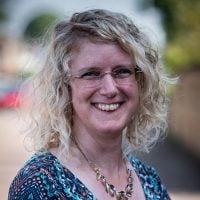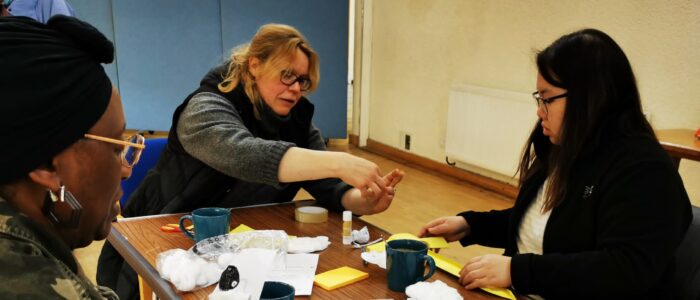Be who you are—don’t just fit in!

All human beings need a sense of belonging. It is integral to our well-being. A lack of belonging underpins the divisions in UK society that the Casey Review has identified. Segregation, deprivation and social exclusion are both the source and the consequence of failing to feel that we belong.
Integration is a two stage process. Migrants and refugees settling in the UK must have an understanding of services and systems, and the language to engage with them, to achieve functional integration into society. This access is important in addressing inequalities. However, is this enough? To belong, you have to have an emotional connection. ‘Fitting in’ to external patterns of behaviour is often taken as an indicator of belonging but can actually increase the sense of alienation an individual feels. If you can do the activity but still feel isolated, or if you can do it but feel like you have to compromise your identity in a way you don’t feel comfortable with, it won’t make you feel like you belong. There is a need for functional integration, where someone is able to access services and opportunities, as they wish, but equally important is the deeper emotional connection where you feel empowered, valued and accepted for yourself. In other words, we need to think about how we meet individual’s needs most effectively and not just about what we do.
I developed Creative English to address functional and emotional belonging: to provide the necessary language for everyday situations that learners so desperately want, and the flexibility for people to bring themselves into the room. I shaped the programme around a sort of soap opera, where participants practise language for everyday situations, but with elements of humour and melodrama which enhance the memorability of the language. As the details of the characters and situations are created by the members of the group, it is easily sensitive to cultural difference. The characters will inevitably reflect the people who are making them. This isn’t a conscious process – we present the things which are closest to us. However, there is also a distance and a safety in the methodology, which means difference can be expressed without personal confrontation.
During the programme’s research and development phase, a scene was being improvised by a group formed of African Christians and South Asian Muslims. According to the plot, the characters had just arrived at a holiday resort. In the improvisation, the husband (played by an African Christian) wanted a glass of wine to celebrate. There was much laughter when, despite repeatedly asking for the wine and despite being told repeatedly he could have anything he wanted, his request was repeatedly ignored. The hotel staff member, played by a Muslim woman, was not prepared to serve alcohol, even in fiction. After the scene, another member of the group asked, ‘This is because you no drink alcohol?’ and after an affirmative ‘Yes’, the group moved on to the next scene with acceptance and unconcern, without the awkwardness of declining a drink offered in real life or a confrontational discussion of the difference. The laughter and focus on the creative task itself rather than one another encourages people to be much more open to differences.
This openness makes it easier to build friendships within a group. Taking a hit to my ego, I discovered that if I was superfluous it was the best possible outcome, as it showed people had built genuine friendships within the group. When I instigated a trip to the Olympic Park, for example, replies to my text were few. However, when a large group of us met to travel there, it transpired it was the learners themselves who had organised one another to come along. One explained, “Harpreet invited me – I had to come!” Another mum of two children under the age of 3 explained what a big deal it was for her to come out, but that here she had friends which gave her the confidence to do it. Friendships weren’t restricted by faith or ethnicity: one mum, for example, had been texting classmates who were Sikh, Muslim, Hindu and Christian from India, Pakistan, Bangladesh, Nigeria, Poland and Essex. Another mum had missed all the sessions during Ramadan but the others in the group had contacted her to let her know what was happening now Ramadan was over. Despite her physical absence from the group, she was not forgotten – she ‘belonged’.
When the group went shopping at the end of trip to the park, I asked one of the mums who wouldn’t normally be out without her husband, if she was okay to get back. ‘Yes, of course! My friends will help,’ she smiled. That’s the thing that’s life changing – not being dependent on a service or professionals of any kind, however kind they may be – but being able to make choices yourself.
I think it’s about giving people the confidence to access whatever they want in society. As the women planned other times to meet up for themselves, Creative English had done what it sought to do. Learners had the confidence to get work or go to the doctor’s for the first time, but, for me, it’s equally important that the legacy of having attended a class is someone to have coffee with, with whom you can take your kids to the park. As the Casey Review shows, isolation is damning. Community, where you can be accepted for who you are, results in well-being: being who you are not just ‘fitting in’.



